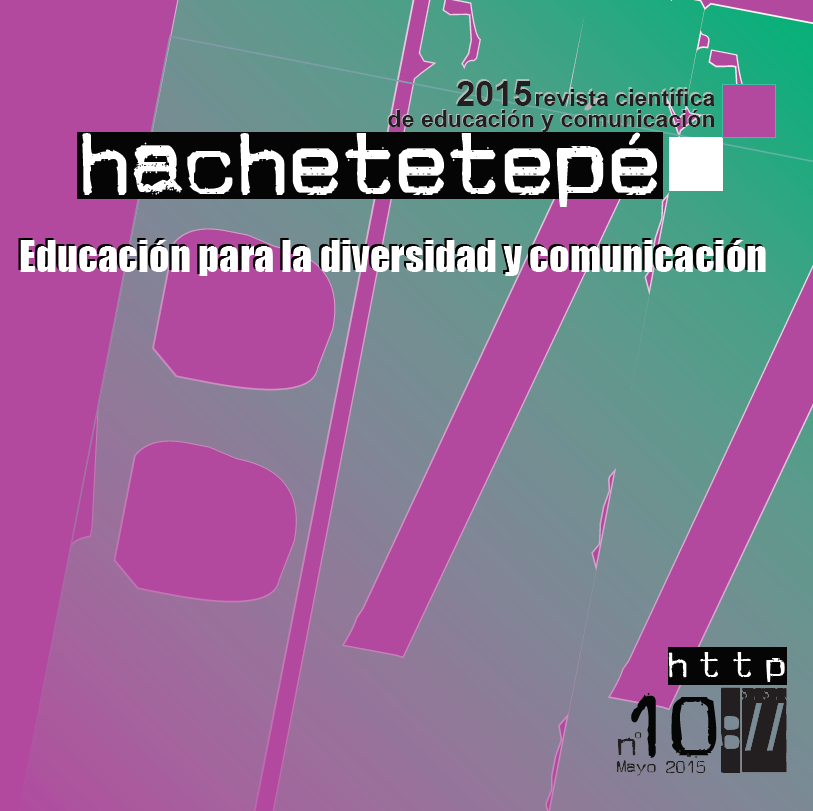Equality, equity, difference: Analysis of conceptual categories that help to base a review of the University Admission topic
Abstract
The present work runs on the review of the conceptual categories equality, equal opportunity, equity, difference and inclusion, which are implicit in ideological positions supported by educational policies. For considering them to be pertinent, they are articulated with the approaches worked in the University Admission in Argentina. The study is fixed to the analysis of the admission in the Mathematics, Physics and Chemistry teacher training faculty in a science academic unit of a public university. It is observed a procedure of entry in which the teacher training faculty remains subject to homogenizing moulds with which continues teaching without adapting itself to a new subject in a changing society. The post modern revision suggests that the liberal and neo-liberal positions, translated into the practices, purposefully seek to conserve positions. It is advocated for its improvement and solutions are risked on the matter.
Keywords
Downloads
How to Cite
License

This work is licensed under a Creative Commons Attribution-NonCommercial-NoDerivatives 4.0 International License.
Those authors who have published with this journal, accept the following terms:
- They will retain their copyright and guarantee the journal the right to first publication of their work, which will simultaneously be subject to the Creative Commons Attribution License . They may be copied, used, disseminated, transmitted and publicly displayed, provided that the authorship, url, and magazine are cited, and are not used for commercial purposes. No derivative works are allowed.
- They may adopt other non-exclusive license agreements for the distribution of the published version of the work (e.g., deposit it in an institutional telematic archive or publish it in a monographic volume) provided that the initial publication in this journal is indicated.
- Disseminate your work through the Internet (e.g., in institutional telematic archives or on your website) once the manuscript is accepted, which may lead to interesting exchanges and increased citations of the published work. (See The effect of open access).
Hachetetepé. Scientific journal of education and communication does not charge a fee for the submission of manuscripts or for the publication of its articles.
References
Asamblea General de las Naciones Unidas (1948). Declaración Universal de los Derechos Humanos (DUDH). Paris.
Baquero R. (2001). “La educabilidad bajo sospecha”. En Cuadernos de pedagogía, Rosario, Año IV (9), 71-85.
Baquero, R., Pérez, A. V. y Toscano, A. G. (Comp.) (2008). Construyendo posibilidad: apropiación y sentido de la experiencia escolar. Rosario: HomoSapiens Ed.
Barrere Unzueta, M. A. (2003). “Igualdad y discriminación positiva: Un esbozo de análisis teórico-conceptual”. En Cuadernos electrónicos de filosofía del derecho, 9.
Bolívar, A. (2004). “Ciudadanía y Escuela Pública en el contexto de Diversidad Cultural”. En Revista Mexicana de Investigación Educativa, 20; 15 a 38.
Bolívar, A. (2005). “Equidad Educativa y Teorías de la Justicia”. En Revista Electrónica Iberoamericana sobre Calidad, Eficacia y Cambio en Educación, 3 (2); 42-69. Recuperado de: http://www.rinace.net/arts/vol3num2/ar/ art.4.pdf.
Carli, S. (2012). “El Estudiante Universitario. Hacia una historia del presente de la educación pública”. S XXI Ed. En Debate Universitario. 2; 178.
Campos Villalobos, N. (2007). “Equidad y educación”. Recuperado de: http://filo-edu.blogspot.com.ar/2007/12/equidad-y-educacion.html
Dussel, I. (2000). “La producción de la exclusión en el aula: una revisión de la escuela moderna en América Latina” En. X Jornadas LOGSE “La escuela y sus agentes ante la exclusión social”. Granada.
Dussel, I. (2004). “Inclusión y exclusión en la escuela moderna argentina: una perspectiva postestructuralista”. En Cadernos de pesquisa. 122; 305-335.
Foucault, M. (1975) Vigilar y castigar. Nacimiento de la prisión. Buenos Aires: S XXI. (Edición 2008).
Habermas, J. (1999). La inclusión del otro. Ensayos sobre teoría política. Barcelona: Paidós.
Hillert, F. (1999). Educación, Ciudadanía y Democracia. Buenos Aires: Tesis 11. Grupo Editor.
Ministerio de Educación de la Nación - Secretaría de Políticas Universitarias (1995) Ley 24521 Ley Educación Superior.
Nivón Bolán. E. et. alli (2013). Hegemonía cultural y políticas de la diferencia. Buenos Aires: CLACSO; 23-45.
Puiggrós, A. (2003). Qué pasó en la educación: breve historia desde la conquista hasta el presente. Buenos Aires: Galerna.
Ramallo, M. y Sigal V. (2010). Los sistemas de admisión de las Universidades en la Argentina. Documento de Trabajo N° 255, Universidad de Belgrano. Recuperado de: http://www.ub.edu.ar/investigaciones/dt_nuevos/255_sigal.pdf
Rodríguez, L. G. et Soprano, G. (2009) La política universitaria de la dictadura militar en la Argentina: proyectos de reestructuración del sistema de educación superior (1976-1983). NUEVO MUNDO. MUNDO NUEVO. Recuperado de: http://nuevomundo.revues.org/56023
Sosa, E. (2009). “La otredad: una visión del pensamiento latinoamericano contemporáneo”. En Letras, 80(51); 349-371.






